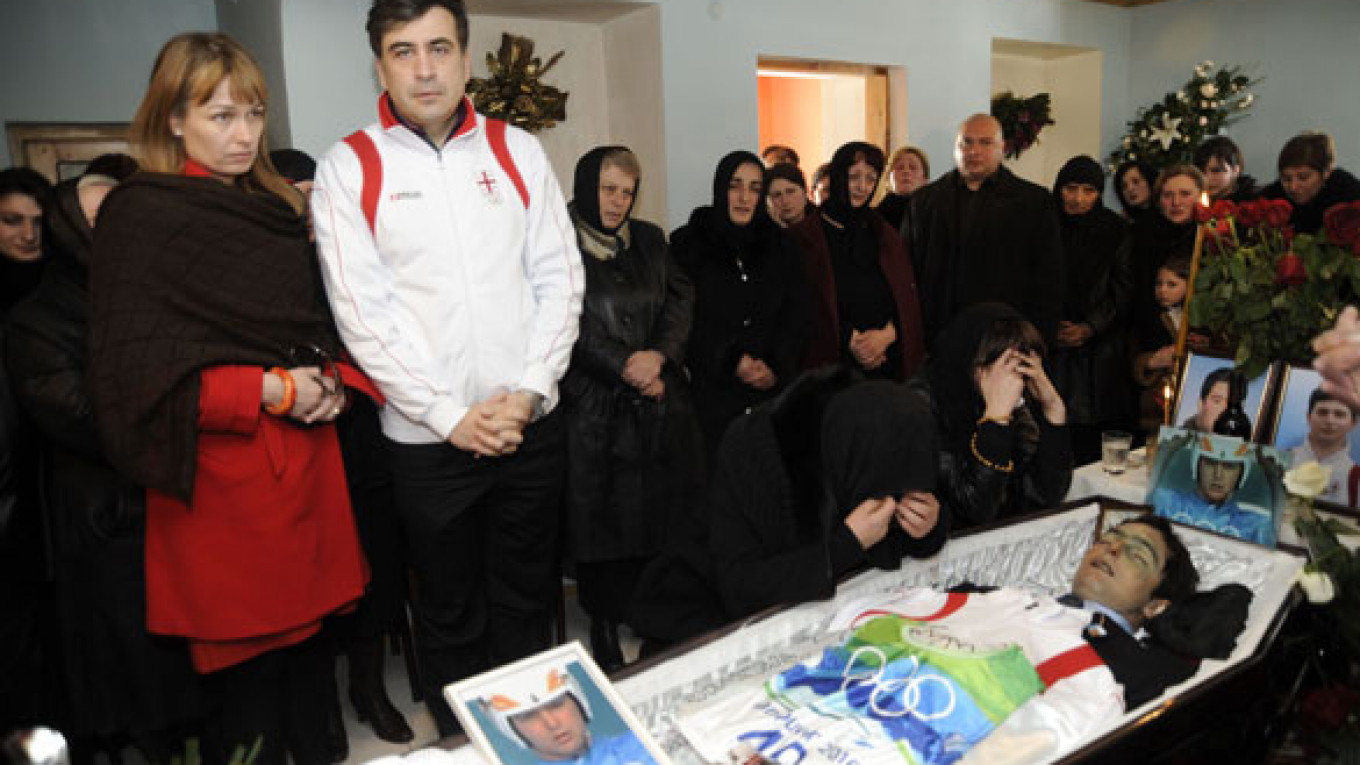VANCOUVER — International Olympic Committee president Jacques Rogge said Thursday that he has written to Russian organizers of the 2014 Sochi Games to make sure that the luge track is built "absolutely for safety first."
Georgian luger Nodar Kumaritashvili was killed in a training run hours before the Vancouver Games opened. Traveling at nearly 145 kilometers per hour, he lost control of his sled and flew off the track into a steel pole.
"The IOC has been very clear in saying to the Russians: Please deliver us a track that will not be hazardous," Rogge said Thursday.
Construction of the Sochi track is due to start this year. Organizers say it is designed to be 10 to 15 kilometers per hour slower than the track in Whistler.
Rogge said the International Luge Federation had approved the design of the Whistler track and said making it faster was never part of the "philosophy of the IOC."
"We never asked for more speed in the IOC, never," Rogge told reporters. "There's never been any requests to say you have to go faster."
The death has raised questions about the design and speed of the Whistler track, and whether the Olympics are pushing athletes too far. The International Luge Federation said the death was the result of human error, but made changes to the track for what it called emotional and not safety reasons.
Asked who was ultimately responsible for the fatal crash, Rogge said: "Everyone is responsible."
"The IOC must make sure we have good games," he said. "That's our final responsibility. It's not a responsibility in judicial terms. It is a moral responsibility."
Rogge said the track was designed by the international federation and built to those specifications by Vancouver organizers. The competition was also run by the federation.
"The IOC is not legally bound to the track," Rogge said. "We are morally responsible. Our responsibility is to make sure that no unnecessary risks are taken."
The IOC chief said the luger's death — the first fatal accident for luge since 1975 — will always cast a shadow over the Vancouver Olympics, just as the slaying of Israeli athletes remains a legacy of the 1972 Munich Olympics and a bombing is forever tied to the 1996 Atlanta Games.
At the same time, Rogge said the death should be taken separately from the overall success of the Vancouver Games, particularly the "unique atmosphere" fostered by huge and enthusiastic crowds.
He said the carnival atmosphere could be compared to that at the 1994 Winter Games in Lillehammer and the 2000 Olympics in Sydney.
"The people in Vancouver are partying and having fun," he said. "What will stand out is the communion between the citizens and the games."
Rogge will give his final verdict on Vancouver at Sunday's closing ceremony. Asked if there was an adjective he could use to describe the games, he said, "In general I believe it will be a positive word."
The IOC is counting on Russian athletes to bounce back in Sochi after a disappointing showing in Vancouver — only 13 medals, including three golds so far.
"The Russians know how important this is, not just to please the outside world," Rogge said. "It will serve to ignite the interest of the games in the home country.
"We should not underestimate the knowledge of sport of the Russians. It's in four years' time, and I trust they will be ready."
A Message from The Moscow Times:
Dear readers,
We are facing unprecedented challenges. Russia's Prosecutor General's Office has designated The Moscow Times as an "undesirable" organization, criminalizing our work and putting our staff at risk of prosecution. This follows our earlier unjust labeling as a "foreign agent."
These actions are direct attempts to silence independent journalism in Russia. The authorities claim our work "discredits the decisions of the Russian leadership." We see things differently: we strive to provide accurate, unbiased reporting on Russia.
We, the journalists of The Moscow Times, refuse to be silenced. But to continue our work, we need your help.
Your support, no matter how small, makes a world of difference. If you can, please support us monthly starting from just $2. It's quick to set up, and every contribution makes a significant impact.
By supporting The Moscow Times, you're defending open, independent journalism in the face of repression. Thank you for standing with us.
Remind me later.


